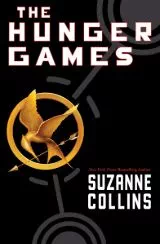The Hunger Games: Catching...
Catching Fire is the second book of The Hunge...
By Kathy Graves1251

0

How far are you willing to go to survive?
Many years in the future, in the ruins of what was once North America lies a nation known as Panem split up into twelve districts each responsible for producing, procuring or refining specific goods, and ruled over by a cruel and ruthless governing body known as the capitol.
In order to keep the districts in check, each year a boy and a girl are selected to participate in the hunger games, a televised event where the participants are to fight to the death with the winner receiving glory and wealth for their own district. When Katniss Everdeen, of district twelve, volunteers to save her sister, she is forced to survive in the wild where everyone is out to kill everyone else.
Collins’ tale is both chilling and disconcerting, a satirical futuristic portrait of society meant to serve as a cautionary tale rather than a feel-good one. She writes with precision, and in a straightforward manner meant to force her readers to take a long hard look in the mirror. She is both adept at storytelling and at character studies, providing us with plenty of complex and rich characters to love and despise.
Katniss, for example, is meant to represent hope and strength, yet she is also forced to make difficult decisions. Peter Mellark serves as her compass, an anchor to keep her rooted to her humanity rather than lose herself in the games as everyone else does.
This story takes a long and hard look at capitalism, fear-mongering, political propaganda, and the lengths powerful people will go to in order to stay on top and to keep others in check.
The Hunger Games isn’t just a dystopian story meant to entertain, it’s a warning sign.
Updated 4 years ago